Embrace Voluntary Simplicity for a Frugal and Happy Life
This website may earn commissions from purchases made through links in this post.
Embrace simple living with these 10 practical tips for voluntary simplicity as well as the most important thing to do before simplifying.
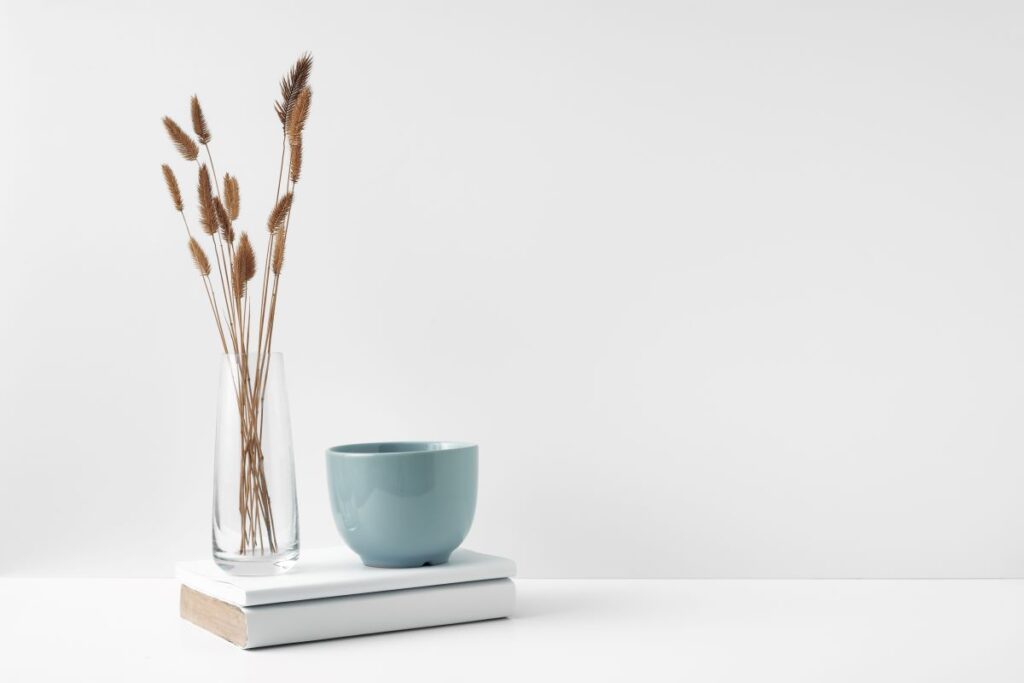
The other weekend, instead of spending the day scrambling to catch up on cooking, cleaning, and all the other things that never seem to get done, I took a walk to the local farmer’s markets.
A long, slow walk.
A walk along the winding river that sparkled in the morning sun. I breathed in the fresh morning air and felt the cool sea breeze and the warm sun on my skin.
I said hello to the people passing by: the joggers, the dog walkers, the families making a bee-line to the water.
I wandered the markets, tasting the fruit, smelling the flowers, sipping a local coffee.
And I was happy. Happier than I’d been in a long while.
The contentment I’d been searching for when all the work is ‘done’ (it’s never done) was found along the river and among friendly strangers.
Next week, I thought, we should ride here with the kids. And bring our swimmers. And some morning tea.
But of course, next week never comes.
It’s Hard Not to Be Ruled By Stress and Stuff
I don’t know if it’s modern life or just middle age, but life is stressful nowadays.
It’s easy to seek solace and a little dopamine to get us through the day by shopping for things.
And even if you’re not a shopper, stuff can still rule our lives.
It can be tempting to think that once our stuff is tidier, cleaner, more organised, more ethical, more hand-crafted, more environmental, more renovated, more feng-shui-ed, more Instagram-worthy…then we’ll be happy.
But there’s always more.
And in the meantime, we’ve missed out on the true path to contentment.
Putting so much emphasis on “stuff”… and it doesn’t matter if you’re buying it or purging it… makes “stuff” more important than it should be…the “secret” is a balance of consistency, moderation, and flexibility, and the goal should be a lifestyle that is joyous… exciting… and fulfilling. There is nothing restrictive or negative about really LIVING your life instead of just existing day to day.”
[source]
Embracing Simplicity

When the kids were younger, we went on a short trip.
We stayed in a tiny cabin that only had the basics. And it was enough.
It was easier to put the kids to bed when they shared a room. It was easier to keep the place clean when I wasn’t picking up endless toys (not to mention juggling the endless piles of washing).
The kids played in the park. We ate simple meals on the porch. We read books together in the evening.
Life was good.
Then we came home.
As soon as we returned home, my stress level dialled up again. There’s suddenly so much to do again.
How are we meant to balance the practicalities of real life with the deep yearning for something more simple?
While the physical aspects of simplifying are evident, true transformation begins with the mental embrace of simplicity—less stuff and more joy, peace, and meaningful connections.
Voluntary simplicity is focusing on simple, meaningful pleasures and reducing the consumption and accumulation of material items, especially those things that harm the environment.
Simplicity, More Than Just Decluttering
I will get to some actionable steps for practising simplicity.
But before we get to the decluttering that most of us think of when it comes to simplifying, I would argue that, just like our cabin trip, it’s important to refresh the soul with enriching things that will be the driving force of your voluntary simplicity and will ultimately make you happier than decluttering your wardrobe or organising your bookshelf by colour.
For me, things that enrich my soul are time spent with loved ones, following my passions, connecting to the natural world, learning new skills, reading, and being creative.
Simplicity, for me, is finding time to focus on those things.
It’s hard not to get caught up in the idea that once everything is decluttered and organized—aka perfect—then real living will start.
That’s why I think it’s important to first remind ourselves what we’re living for. Life editing takes time and shouldn’t get in the way of actually living.
Other ways to think of simplicity might be valuing:
- less over more
- quality over quantity
- stillness over activity
- peace over perfection
- quality of time over busyness
- essentials over superfluousness
- silence and solitude overstimulation
- mental clarity (meditation, journaling, etc.) over rumination
Practicing Simplicity
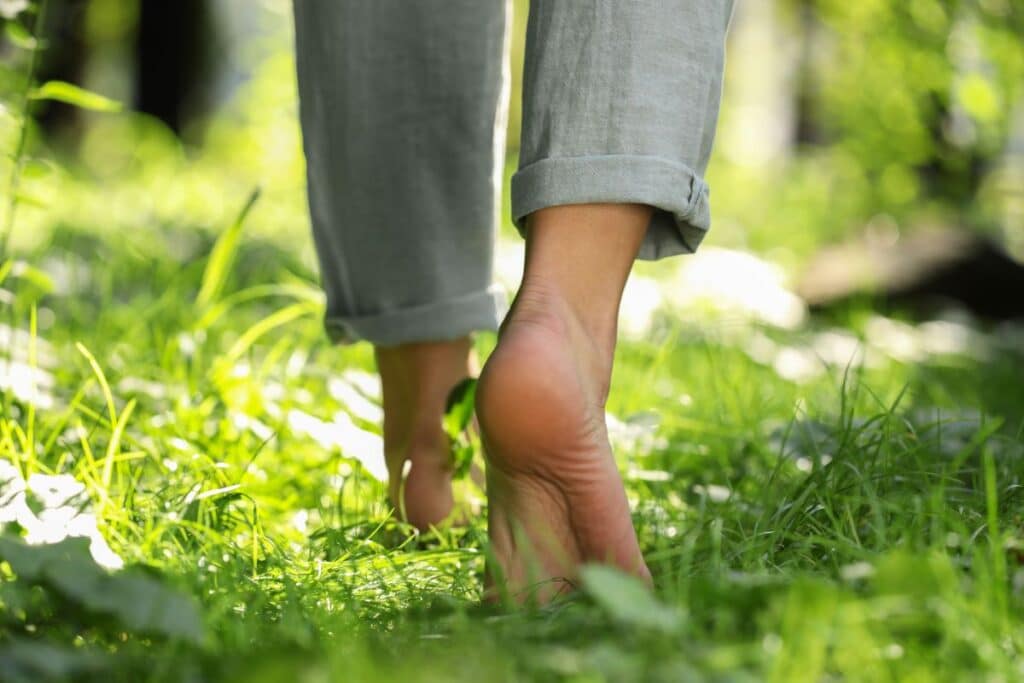
It’s important to note that I am NOT a simple living expert. I am very much still on a journey to less stress.
I have a habit of taking on too much. I get stressed easily. I don’t chuck stuff out. Hubby brings free things in off the street. Our tiny townhouse has a clutter problem.
I’m a work in progress, but here are some of the practical steps I’m trying to incorporate into my life to simplify it.
1. Define What Simplicity Means to You
Simplicity can vary greatly from one person to another. Spending some time reflecting on what a simpler life looks like for you. Is it fewer possessions, more free time, less technology, more nature, or something else entirely?
For me, simplicity would also include less guilt! My husband never feels guilty spending an afternoon doing whatever he wants, but me? I take one look around, see about a hundred tasks left undone, and then I don’t really enjoy the time I take for myself.
2. Start Small
Seriously, how many of us have wanted to quit our jobs, jump in a campervan and head bush?!
It’s not always practical (kudos to the peeps who actually do it!)
Choosing to simplify can feel like we’re adding more balls to juggle rather than taking stuff away.
You mean, now I have to find time to declutter, too?
In the end, though, a bit of intentional simplifying can be worth it. In the meantime, it’s easier to start small with manageable tasks like decluttering a drawer or deleting social media from your phone.
3. Schedule Time for Non-Activity
Just as you might schedule meetings or appointments, it can help to block out time in your calendar for doing nothing.
I know it’s a bit of weird mental gymnastics, but when I put ‘self-care’ time on my calendar, I feel less of the guilt mentioned above.
I use this time for drinking coffee and reading a book (usually featuring a remote cabin and a gruff but kind lumberjack – just sayin’), but obviously, use this time to do whatever relaxes you.
One exercise that I find super useful is the name five things meditation. Name five things you can see, four things you can hear, three things you can feel, two things you can smell, and one thing you can taste.
In fact, this meditation exercise is great to do any time you want to reduce stress.
I like to focus on natural things: the way the sunlight filters through the leaves, the sound of the birds, and the feel of the air on my skin.
This can help reduce the feeling of being constantly busy and allow you to appreciate moments of simplicity.
4. Schedule Time for Planning and Life Admin and Outsource Your Brain
Did you know I’m writing a book about life admin? When I get time, that is.
Anyway, having time for planning and catching up on life admin is another one of those adding a task to reduce stress.
There is SO MUCH LIFE ADMIN these days.
Trying to remember everything is just too much. And if you’re mum, everyone is probably relying on you to remember everything for them too. And god help you if you forget!
(That’s how it is in my house, at least.)
Rather than letting life admin take over my life, I find it less stressful to do it in set blocks. For example, answering emails once a day, spending half an hour a week (in a single block) on meal planning, grocery shopping, filling out forms, paying bills, making appointments, etc.
I also outsource everything I can to calendar reminders on my phone or post-it notes around the house.
I can’t currently simplify this part of my life, but I can get as much of it out of my head and use systems and tech to at least give me the illusion of a more simplified life.
5. Consume Less Media
Gone are the days of 30 minutes of news in the evening. The 24-hour news cycle is relentless and exhausting.
Between the news, social media, streaming shows, and, well, blog posts like this, we consume a lot of media.
I don’t know about you, but my brain gets tired.
Taking time out away from screens and consuming media can help.
5. Implement a ‘One In, One Out’ Rule
Easier than declutting the whole house, to maintain a simpler living space, I’m trying to adopt the rule that for every new item brought into the home, one must leave.
This practice helps curb the accumulation of unnecessary items without adding ‘decluttering’ to the already long to-do list, although it’s easier said than done.
We’ve lived in the same townhouse for seventeen years, and we have a habit of picking stuff off the street and rarely throwing things out, so between the four of us, we have a lot of work to do to simplify.
6. Digital Declutter
Just like a desktop in real life can get cluttered, so too can our digital devices. You should see my computer desktop. Even though I have a great filing system, I still can’t seem to keep files organised.
Even though it’s not ‘real,’ digital clutter can still be a drag on our minds. Digital decluttering includes unsubscribing from unused email lists, deleting unnecessary files and photos, and otherwise cleaning up the digital mess.
7. Connect with Community
Simplicity isn’t just about minimising belongings—it’s also about enriching connections. One way to create strong community ties is by participating in local events, joining clubs, or volunteering. That way, you’re not out shopping on your time off; you’re spending time with people, developing meaningful relationships, and experiencing life.
My only caveat to that is that it’s important to have healthy boundaries. If you take on too many commitments, especially if you’re volunteering and taking on responsibilities, you can end up stressed and burned out instead of enjoying community engagement. Take it from someone who has experienced this first-hand.
8. Shop Less
Just buying less stuff in the first place simplifies life.
But it’s not always that easy. We are constantly bombarded with signals to shop (I find Instagram particularly drives my urge to consume).
By buying fewer things, we have less need to organise, clean, and declutter our stuff, so double win. And we’re saving money at the same time.
9. Limit Your Wardrobe and Reduce Fast Fashion
It’s hard to avoid fast fashion these days.
Even the super-expensive stuff isn’t made like it used to be. And I don’t know about you, but I can’t afford the super-expensive stuff anyway.
But a good place to start is to buy the best quality in your price range (second-hand clothes are a good option) and as few items of clothing as is practical for your situation.
10. Spend More Time in Nature
I spend a lot of time indoors and on a computer. But I know I feel more relaxed and content when I’m outside.
Even watching the ants on the city pavement or the leaves rustle in the trees along the street can be calming.
Research shows that spending time in nature is good for us. There are links to the research in the article below along with some ideas for getting outdoors.
You might also like 101 ideas for spending more time in nature.
Summary
Define your own version of simplicity
Start small
Schedule down time
Use tech as a second brain
Consume less media
Declutter slowly
Declutter digital ‘stuff’
Prioritise relationships
Shop less
Limit fast fashion
Spend more time in nature
Modern Simple Living
We often equate simple living with a back-to-nature tree change.
Let’s give up our jobs in the fast-paced city and retreat to a homestead somewhere in the country.
However, voluntary simplicity can happen anywhere and for anyone.
It is a way of life that attempts to balance outer growth with inner growth (as Richard Gregg described it in 1936) – a way of life that is outwardly simple and inwardly rich (Duane Elgin).
“This way of life embraces frugality of consumption, a strong sense of environmental urgency, a desire to return to living and working environments which are of a more human scale, and an intention to realize our higher human potential—both psychological and spiritual—in community with others.”
[source]
Graham Hill of Life Edited (thanks to a reader who told me about this concept) just goes to show voluntary simplicity isn’t homesteading.
He uses cutting-edge technology and smart design to turn a tiny apartment in New York into a smart, simple, multi-functional space that has less stuff and a lower ecological footprint but is just as comfortable (you can check out his apartment here).
Of course, just like not all of us can head to the country and live on a homestead, not all of us can or want to live in a tiny space.
But it shows there are many different versions of simple living.
We can take the ideas of life editing and voluntary simplicity to improve our lives where we are right now.

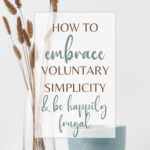
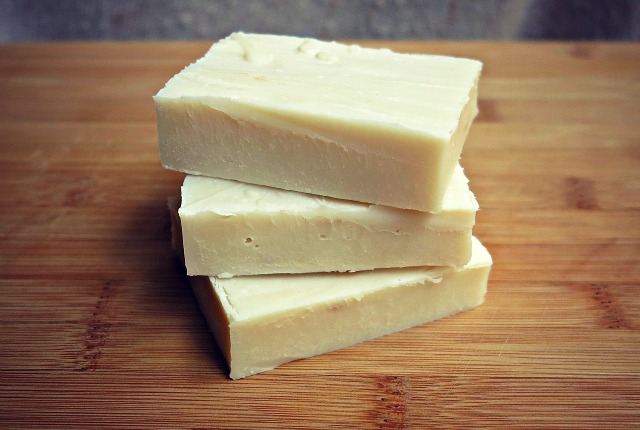


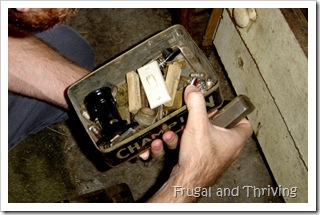

Great post. We’re also just back from a simple cabin holiday and I can really relate to your thoughts on that!
Thanks Pam. Simple cabin holidays are the best!
Sometimes I feel like we have too many options in our lives to choose from. And when you remove some of them, like on a cabin holiday, life becomes more simple & peaceful. Its nice to go back to basics & press the reset button. Part of what has helped me is cutting back on social media. Reading what others were up to every day was making me feel like I was not accomplishing enough in my own life when I saw all their purchases, trips etc.. Turning that noise off, has made me quite content to follow my own path.
Yes, way too many options!
Social media is like the ultimate guilt trip in keeping up with the Jones. Not only immediate friends and neighbours to compare to, but old school friends you haven’t seen in years :). Tuning out feels soooo good!
Hi Melissa,
I stumbled onto your blog a couple of months back and decided to just go back to the beginning of your topics and start from post 1.
i must say, ive spent many MANY hours reading your posts, perhaps not every post but i certainly scrolled though every one of the 195 pages of them. And just now i reached page 1. And i feel quite sad.
The online world is a weird thing isnt it. You have chatted to me endlessly, and ive pondered your thoughts over many a cup of tea and passing cloud. Yet you probably have no idea of the impact your writing was having on me. All i really have to say is a huge thankyou.
i needed help in a financial sense, and thanks to your posts ive (hopefully) got my goals\budget\spendings on track. but now i must admit Im quite hooked on your thriving concepts and really looking forward to your future posts.
thanks again, the effort you’ve put into this blog is hugely appreciated.
Wow. Thank you, Kath. I’m glad you’ve found the blog useful. The online world is funny like that. I’ve done exactly the same thing with other people’s blogs, so I know what you mean! Thanks for taking the time to leave a comment, it’s lovely to meet you :).